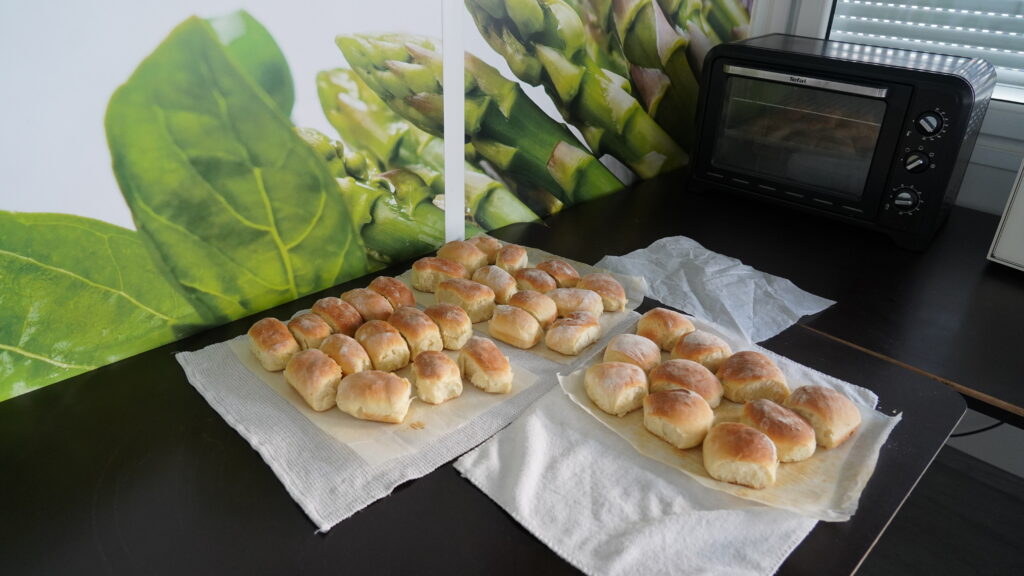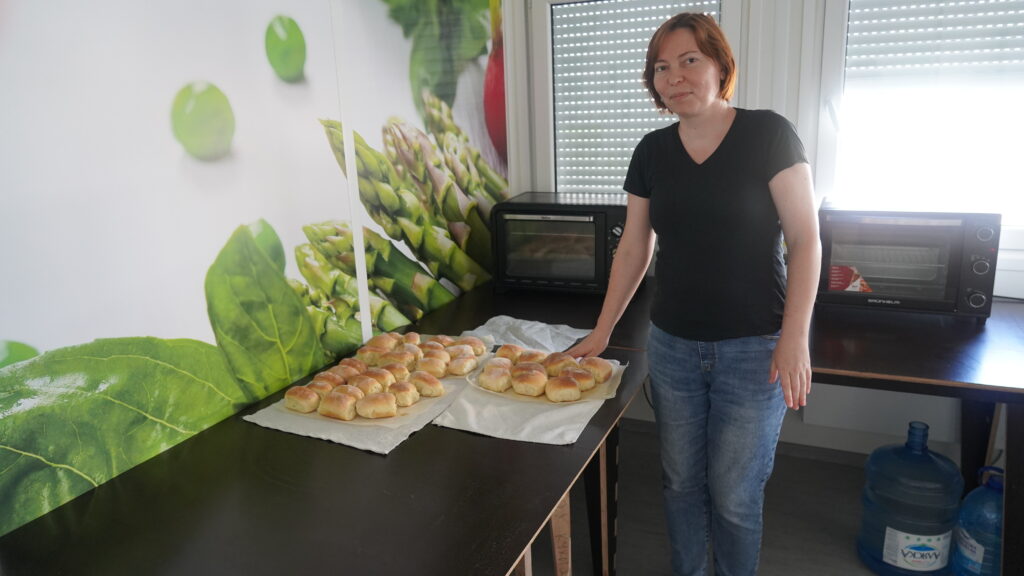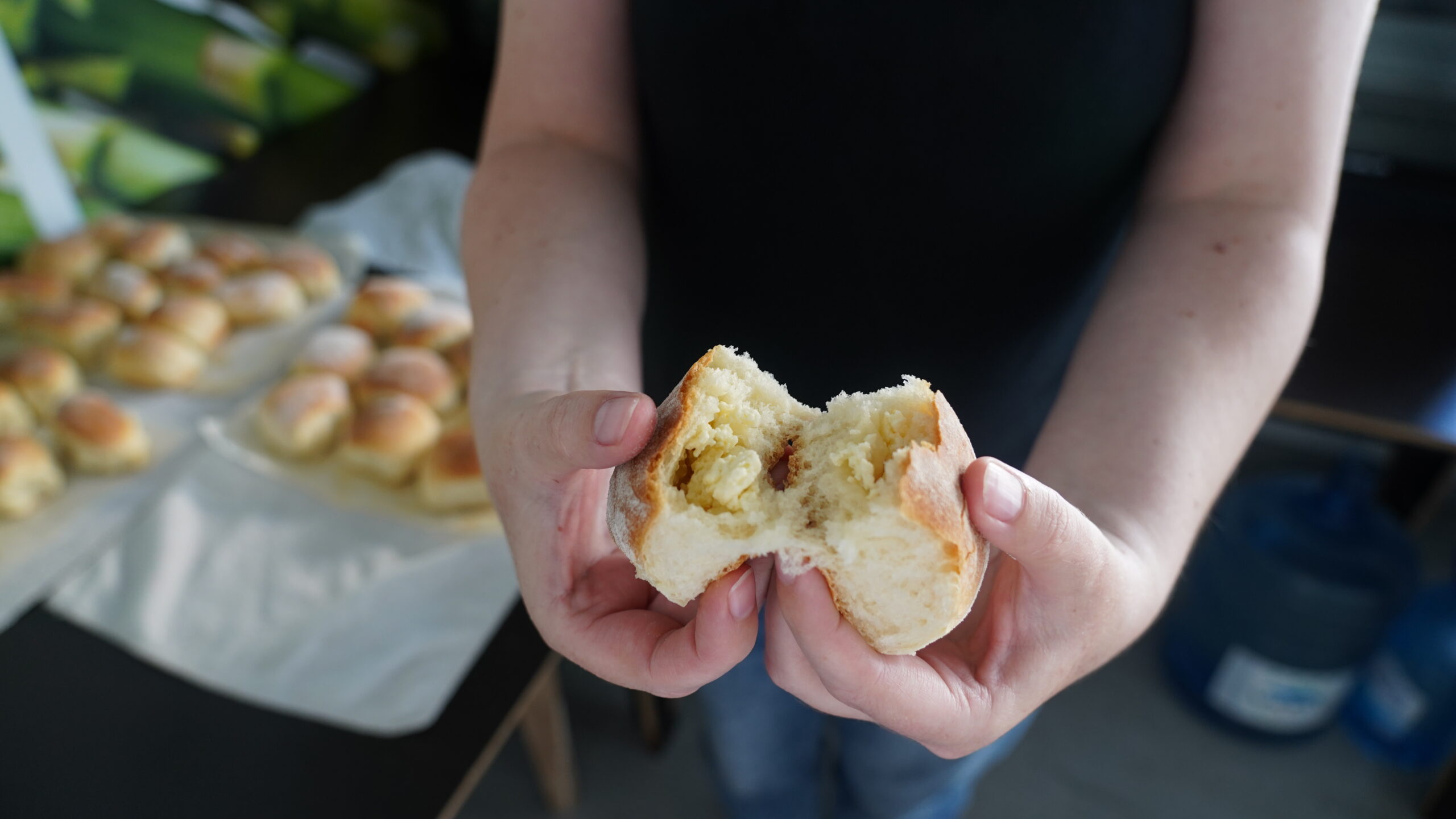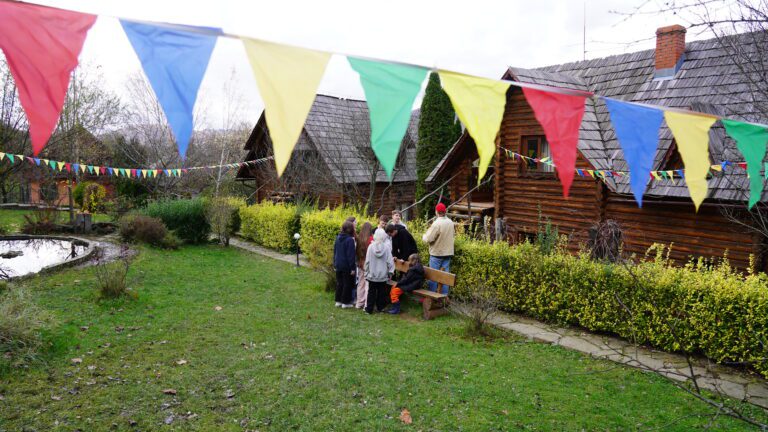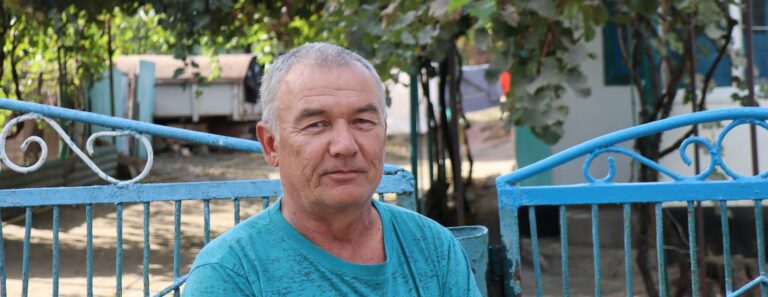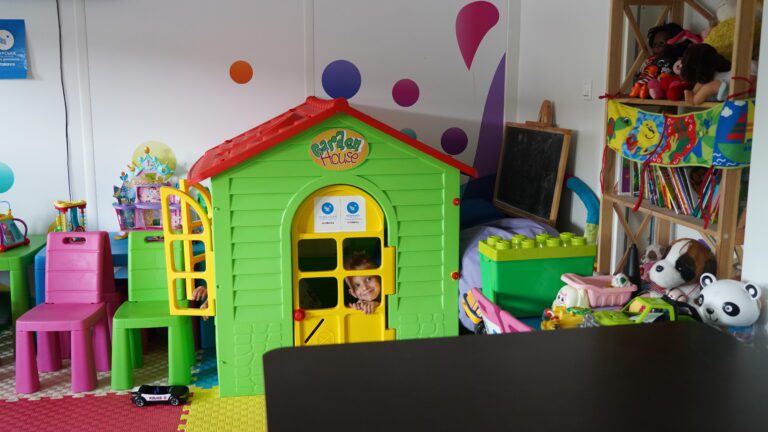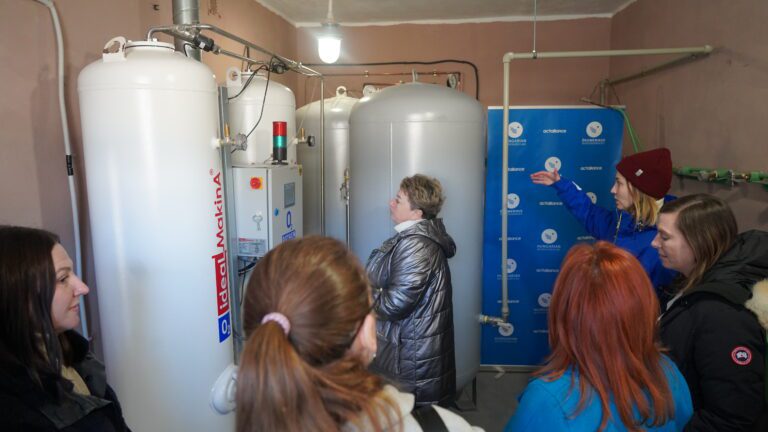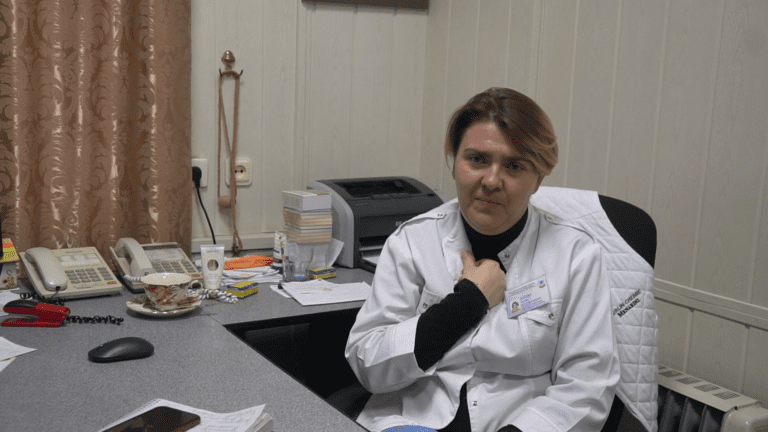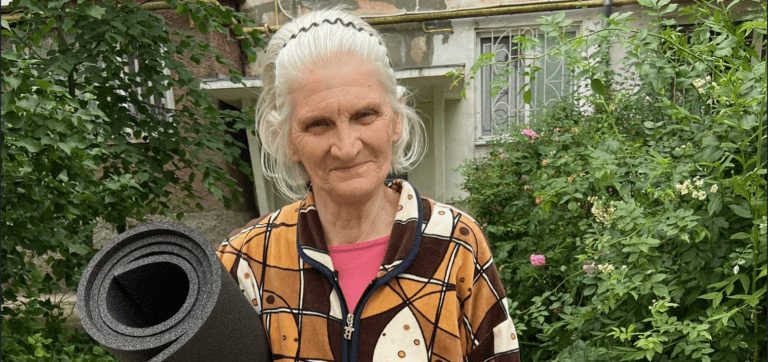“Your home is where the fresh pastries are”
Western Ukraine, and especially Lviv has experienced a huge influx of people ever since Russia invaded Ukraine in February 2022. Many have fled to other countries – via Poland, Slovakia or Hungary – but close to 300,000 decided to stay in the city and surroundings, creating a huge need for accommodation. Out of this need the modular city was born: the shelter made up by container homes, common kitchens and bathrooms today hosts close to 1000 IDPs from Eastern Ukraine. Nadiya is one of them. We met her and her mother in the modular city’s kitchen, as she was excited to showcase her baking skills using the new oven they received as part of Christian Aid’s and Hungarian Interchurch Aid’s (HIA) Survivor and Community-Led Response (SCLR) programme.
The programme complements HIA’s multisectoral, large-scale emergency response with the goal of increasing the scale, impact and momentum of crisis affected people’s initiatives to help each other to survive with dignity, strengthen communal wellbeing and to start addressing the root causes of vulnerability. Funded by Christian Aid and implemented by HIA, the programme disburses micro grants to these communities in a user-friendly way. The oven presents an example for a quick-impact solution outside of the conventional toolset of humanitarian organisations, but is just right for the SCLR approach.
Nadiya, her husband, mother, son, and daughter were evacuated from the city of Rubizhne in Luhansk Oblast, leaving everything behind. Their hometown was destroyed in battle and occupied. Maybe their home is still there, but someone else probably already lives in it – they have no way of knowing. From their apartment, only memories and traditions remain with them to cling on, not allowing them to let go of the important things that makes them a family. Nadiya’s family loved to gather in the kitchen, drink tea and eat their grandmother’s pastries, sharing their successes and failures – the war took it from them, too. Ever since they needed to leave Rubizhne, the word “home” was a word that meant something in the past.
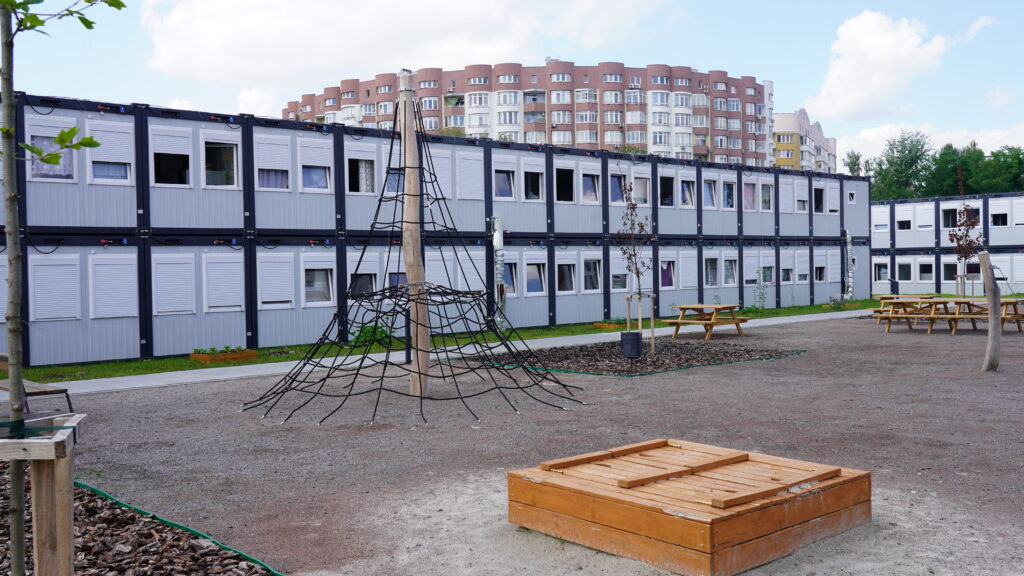

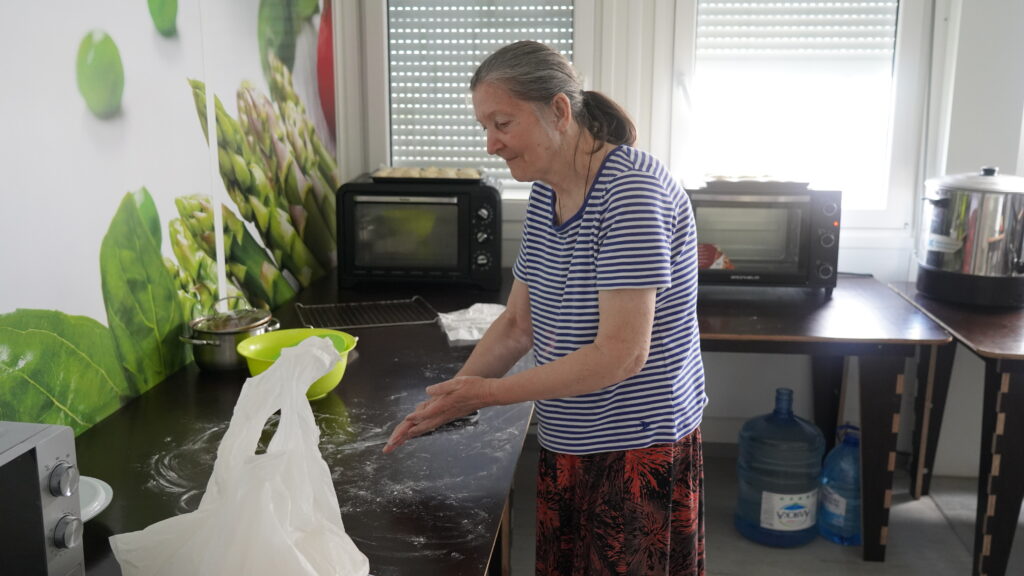

Having lived in shelters for one and a half years, it is difficult for them to recover that sense of home that people who don’t live in conflict zones cherish. Even if now their large family lives in a comfortable container home in the modular city, have space to live and can take walks in an environment they admire. “In some ways, it’s even better than what we had in Rubizhne. I would never have thought that I would ever live in Lviv, in such a beautiful city full of historical monuments and amazing architecture. We are very lucky to have this shelter, we feel very comfortable here, everything is modern, new.” – says Nadiya, but it feels like there’s a “but”.
Of course, there is one. “But… we still want to go home. Our whole life was left there. I want to go back to our house, cook in our kitchen, where every fork and spoon is familiar, make dough, fill it with delicious fruit filling, make hot tea and watch the dough bake in a hot oven. To wait for my husband to come home from work, my children to come home from school, and to have dinner together in a warm family circle.” – Nadiya says dreamily, smiling and closing her eyes. It was these warm memories that motivated them to action, to create a feel of home here in the IDP shelter. Although they can eat hot meals delivered by volunteers every day, but “your home is where the fresh pastries are” – the women say, and take the fresh pies out of the oven to check if they are done.
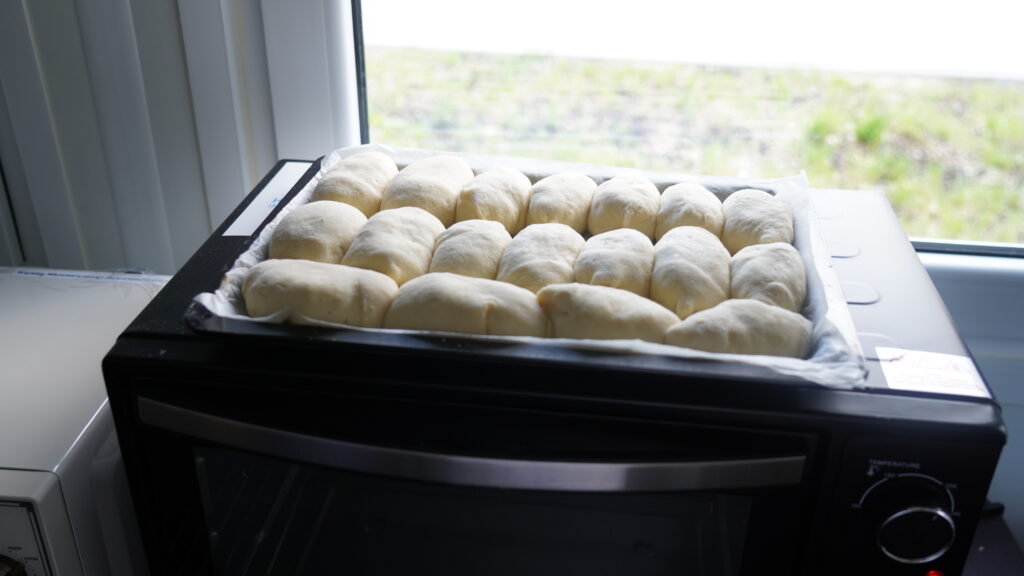

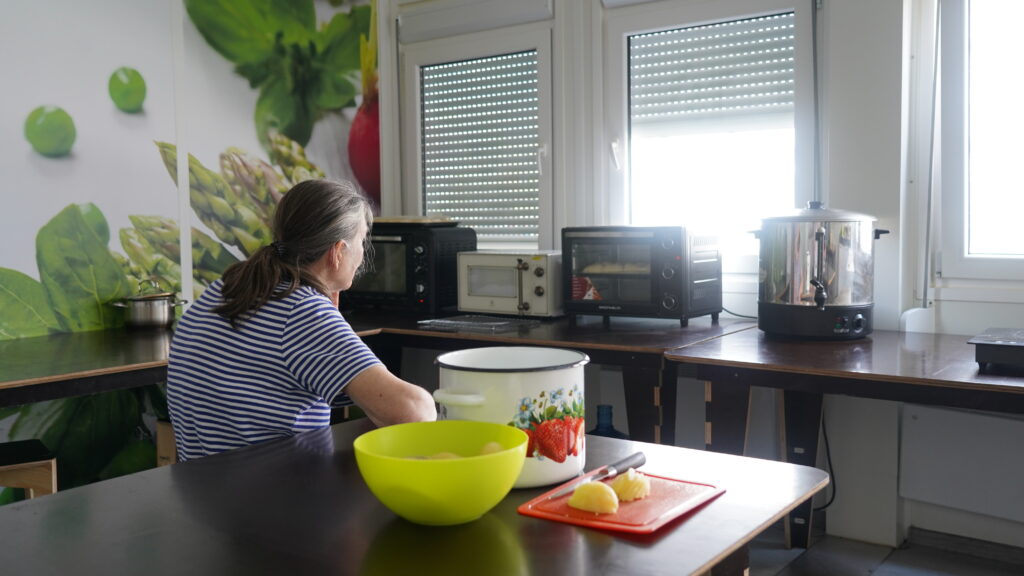

“We really missed an oven here, any kind, no matter electric or some other, the main thing is that we could bake our pies for family. Our boys really love them! We may need to buy bigger trousers for my husband! ” – Nadezhda says, laughing. “We turned to the administrator of the modular town asking whether it would be possible to buy an oven for the kitchen. We have a large family: our son is enrolled in university and needs a laptop, our daughter is studying, and a large part of our family income is spent on my mother’s medicines. We could not afford to buy an oven at our own expense. When we found out that Hungarian Interchurch Aid has bought two ovens for us to use, we were beyond happy!”
Vira – the grandmother of Nadiya’s children – is an avid baker. She quickly takes two trays of pies out of the oven. The large and bright kitchen of the modular house fills with the aroma of dough and vanilla, which lingers through doors and windows, luring neighbours to the kitchen, too. Enough for the family to eat for several days, but she’d rather share and bake a new one. Neighbours are very content: according to them, she makes the best pastries.
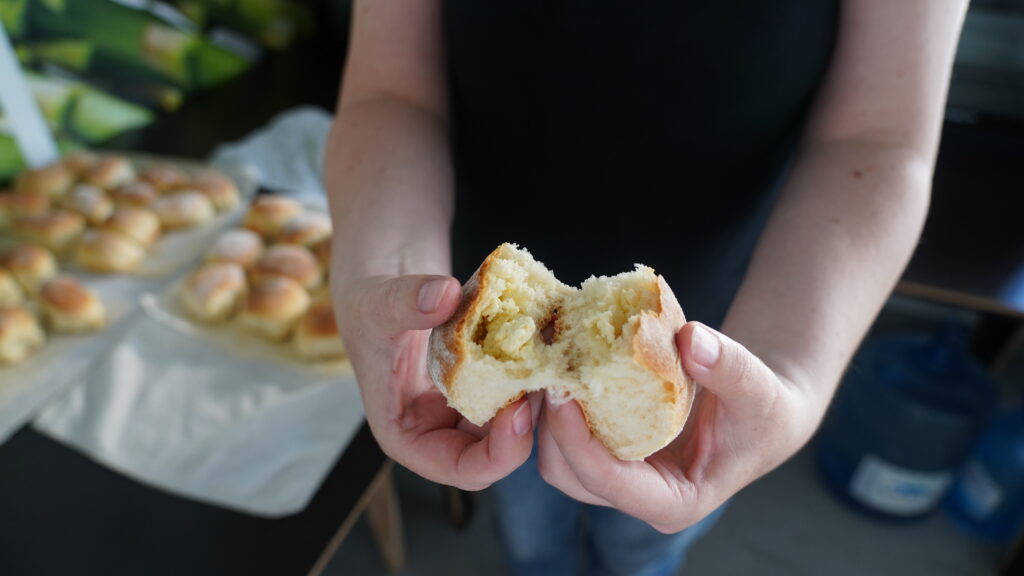

“In the modern world, it takes 3 minutes to buy pastries in any store. But food that you make with your own hands cannot be compared to what you get in the supermarket, homemade is always better! My mother, who survived the post-war hunger, used to say to me: “If you have flour, water, and salt, you will never be hungry, child! Learn to bake bread!” And I still make pies using the same recipe my mother taught me. Next spring, I plan to bake Easter cakes using her recipe. The Easter cake moulds will fit in the oven just fine!” – says Nadiya’s mother with dedication.
Nadiya and Vira smile and offer the HIA team to eat with them. For the displaced family, something they missed has returned with the small oven in the common-use kitchen. It allows them to gather around the table again for an occasion, like they did at home in Rubizhne: a mental homecoming, bite-by-bite.
